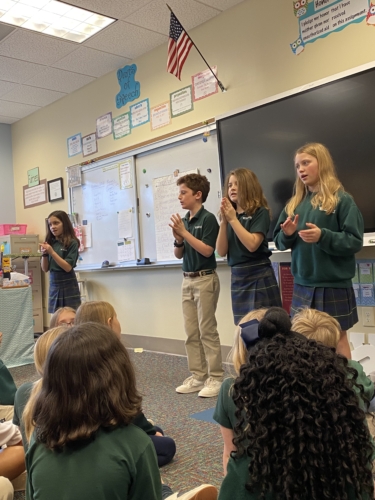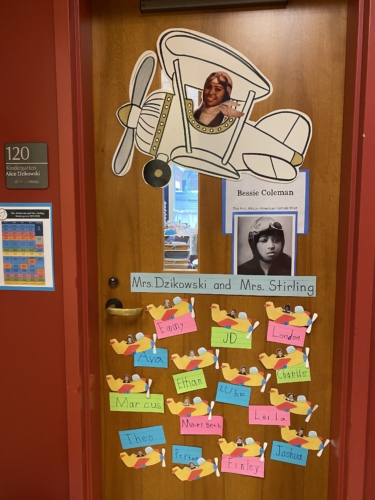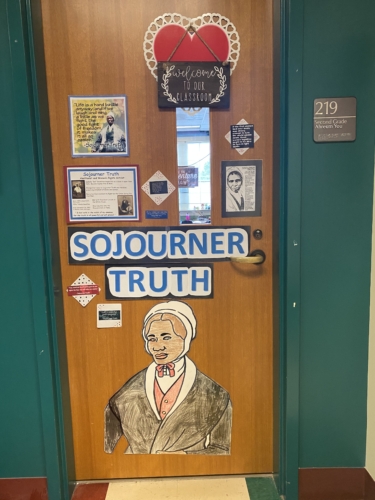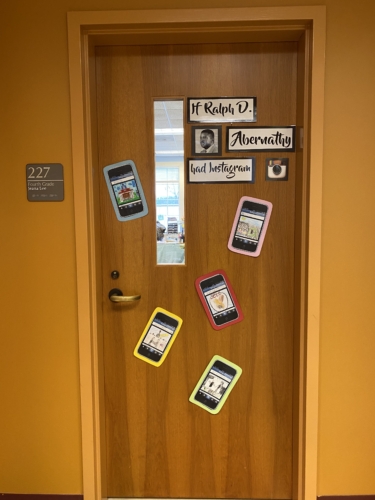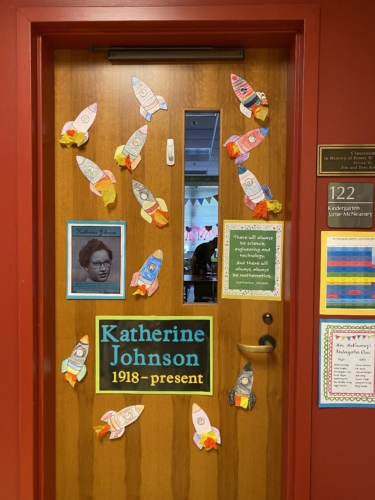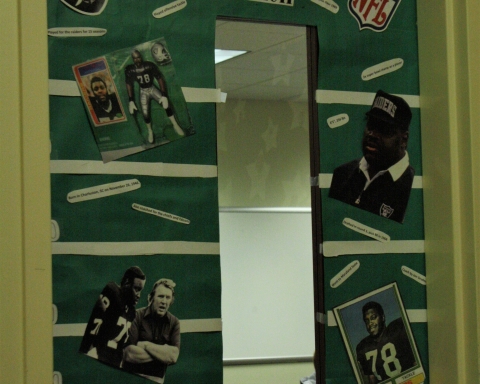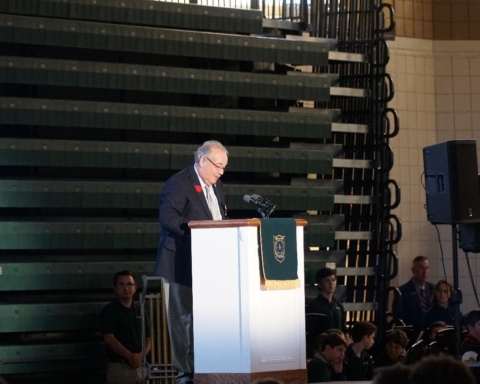Each February, Americans come together to celebrate the culture and identity of African Americans in our country’s history. This is known as Black History Month or African American History Month. According to the History Channel, Black History Month was first officially recognized in 1976 by President Gerald Ford. February was the chosen month because both President Abraham Lincoln and Frederick Douglas were born in this month. Also, every year since its official beginning, the month has been given a specific theme. The 2020 theme is “African Americans and the Vote,” and this is in honor of the sesquicentennial of the Fifteenth Amendment (which granted African American men the right to vote), and the centennial of the Nineteenth Amendment (which granted American women the right to vote).
Every other year, the Wesleyan Lower School teachers and students celebrate and decorate for Black History Month. Each class is focused on a different famous African American man or woman. The class will research their activist and put a display about that person’s life and their contributions to the Civil Rights movement on their classroom door. On Feb. 12, instead of having classes, the lower school students took turns learning about activists from other classes and teaching those classes about their own activist.
Wesleyan Director of Diversity Jennifer Pinkett Smith is a big part of making this celebration day happen. Pinkett Smith said, “In the morning, all the lower schoolers will be in the cafeteria where the stage is and the first and third graders will sing a song each. First grade will sing ‘Swing Low, Sweet Chariot,” and the third grade will sing ‘Ain’t Gonna Let Nobody Turn Me Around.'” These songs were sang as encouragement during slavery or civil rights as a way to keep African Americans going. Other classes will share about their activist through songs, skits or stories. Pinkett Smith thinks that it is very important for the lower schoolers to learn about Black History Month. She said, “Even at their age, they need to understand the impact that African American history had on our country, world and society. We all have gifts and talents, and we all contribute, but often times we don’t hear about it and the world will only present one side to us.”
Jeana Lee is a fourth grade teacher at Wesleyan, and her class studied and focused on civil rights activist Ralph D. Abernathy. Lee thinks that it is important to learn about Black History Month with her class. She said, “It’s not just about one month. We should always be respecting and remembering all the important things and ways that they have contributed. The Civil Rights Movement changed America, but there is still change left to happen.” Fourth grader Ellis Giguere learned all about Abernathy. Giguere said, “Our person is Ralph D. Abernathy, and he was a civil rights activist and he stood up for segregation and nonviolence, and he led the bus boycott.” Another one of Lee’s students, Jordan Hubbell, said, “He served in the army and he was friends with MLK.” Lee’s students chose to sing a song about Abernathy.
Second grade teacher Tonya Walden is celebrating Harriet Tubman with her class. Walden’s class presented their research through a skit, and they showed other students the path through the underground railroad. Walden said that she teaches her students about Black History Month because, “I feel that they need to know the history, and they need to know how to treat everybody equally.” Second grader Caroline Dee said, “Harriet Tubman freed slaves from slavery. Canada is where the slaves are free”. Another one of Walden’s students, Campbell Jane Ray said, “She led people through the underground railroad so they could be free.”
Though the high school does not decorate their doors or celebrate the same way as the lower schoolers, high schoolers will go to a special Black History Month chapel with a guest speaker, and posters with information can be found on the walls and around the stairwells. Sophomore Jeremiah Simmons said, “I think it [Black History Month] is important because you can learn to understand the culture of America and the history of African Americans.” Even after February ends, the impact of African Americans in our history can be remembered and celebrated all year round.

